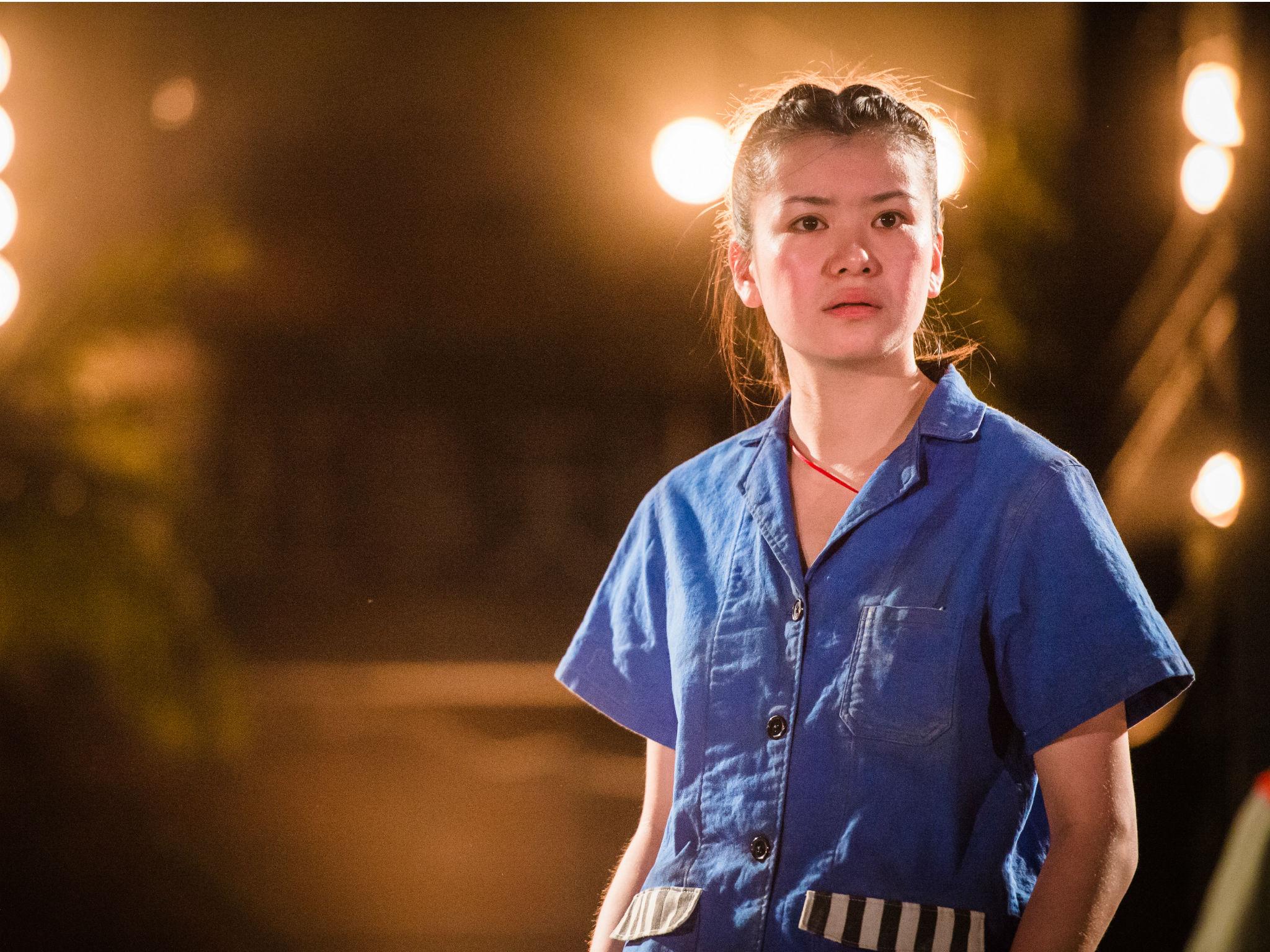Snow in Midsummer, Swan Theatre, Stratford-upon-Avon, review: The translation used here seems to me the rockiest feature of the production
The RSC is bringing Chinese classics to a Western audience with Frances Ya-Chu Cowhig's 'Snow in Midsummer', a piece based on a classical Chinese drama by Guan Hanqing, which was written during the 13th century Yuan dynasty

Your support helps us to tell the story
From reproductive rights to climate change to Big Tech, The Independent is on the ground when the story is developing. Whether it's investigating the financials of Elon Musk's pro-Trump PAC or producing our latest documentary, 'The A Word', which shines a light on the American women fighting for reproductive rights, we know how important it is to parse out the facts from the messaging.
At such a critical moment in US history, we need reporters on the ground. Your donation allows us to keep sending journalists to speak to both sides of the story.
The Independent is trusted by Americans across the entire political spectrum. And unlike many other quality news outlets, we choose not to lock Americans out of our reporting and analysis with paywalls. We believe quality journalism should be available to everyone, paid for by those who can afford it.
Your support makes all the difference.Whose afterlife is it anyway? In the beautiful “Séance”, by the excellent American poet, Anthony Hecht, the voice summoned by the session says that the hereafter is all very different from what the living have been led to think: “You come to a gentle indifference about being thought/ Either a fool or someone with valuable secrets”. The implication is that artists have given a necessarily ignorant and doubtless false report when they have leapt the bounds of the known and arranged a return journey to earth for the wraiths that range in levels of vengeful wrath from the ghost of Clytemnestra in the Oresteia to Elvira in Blithe Spirit (not forgetting Bess Rous in the 2016 Ghostbusters).
Now the RSC gives us the chance of a ghost – and then some – in Snow in Midsummer by contemporary author Frances Ya-Chu Cowhig, a piece based on a classical Chinese drama by Guan Hanqing written during the 13th century Yuan dynasty. The updating and Cowhig's English text mean that there are three forms of cultural interpenetration in the piece as it is performed here – between the worlds of living and dead, tout court; between the ostensibly pragmatic values contemporary China and the traditional customs and superstitions that continue to haunt it; and, finally, between gaping English ignorance and this complexly layered on-rush of double-strength Chinese drama.
Played by a vivid 15-strong cast that included (to my ear) English-, Scottish- and American-Asian actors, Justin Audibert’s infectiously intrepid production has its work cut out in acclimatising the audience for about a quarter of the proceedings. But the story has such a cumulative force that, by the ends, there's an elating sense of barriers having been swept away. The default setting of the story is New Harmony, a remote factory. As she is about to be executed for a murder she did not commit, young widow Dou Yi (Katie Leung) forecasts that there will be a metereological vindication of her innocence. And sure enough, for the three years since, snow has fallen in midsummer and persistent drought has struck the locust-plagued town. Then the little daughter of Tianyun (Wendy Kweh), the business woman who has just bought the ailing local factory, starts to be plagued by the restive spirit of the Dou Yi. The condition for the lifting of these curses is that Tianyun now unravel and expose the causes of this injustice.
This is the first fruit of the RSC's exciting endeavour to bring Chinese classics to a Western audience. Ironically, the translation that they have used here seems to me the rockiest feature of the production – particularly when trying to present the tough tones of colloquial modernity. Referring to her son's action on the nipple as a baby, Madame Wong declares that “Even without teeth, Handsome was one hungry bastard”. “Comrade, your concern warms my heart, but hard liquor's the only lubricant I need”, explains Worker Fang. Your ear can't spot the joins between bits that are meant to be funny and those inadvertently so. The fearless acting is thus left looking a little disjointed at times.
In one plot strand a young gay man called Rocket Wu (Andrew Lung) discovers that his husband, in order to keep him alive, delayed an execution so that he could receive the heart of the Dou Yi, a woman at the receiving end of his father-in-law's evil. It reminds you a bit of Pedro Almodovar's All About Women, which also has more than one fell swap, so to speak. We are introduced to the concept of “ghost money” and in one sequence – unforgettably well staged by Audibert – Dou Yi sits besides an altar eating food offerings with Rocket, a resentful recipient. There is an incantatory duologue about the dubieties of organ donation – “On the far side of the Atlantic my stomach digests/Food that never passed through my lips” – before an act that makes vampirism look vegan. You have the pleasurably tottering sense of horizons massively widened.
Join our commenting forum
Join thought-provoking conversations, follow other Independent readers and see their replies
Comments